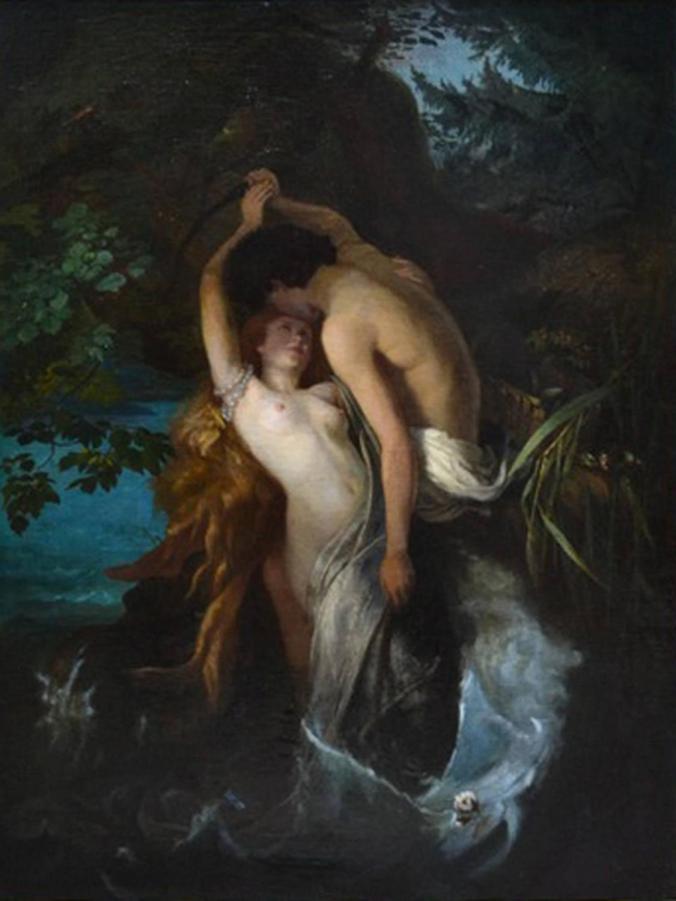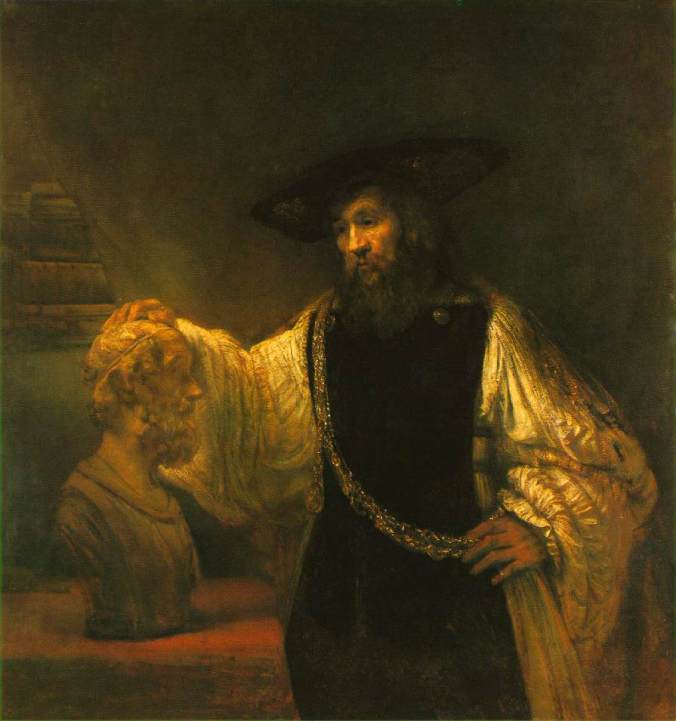I came to Carthage and all around me hissed a cauldron of illicit loves. As yet I had never been in love and I longed to love; and from a subconscious poverty of mind I hated the thought of being less inwardly destitute. I sought an object for my love; I was in love with love, and I hated safety and a path free of snares.
-Augustine of Hippo, Confessions, Book III
A friend of mine once told me that reading Augustine was kind of a breathe of fresh air for those interested in classic literature. I asked him why and he pointed to this passage above saying, “Well – unlike all those philosophers or historians talking about the deeds of great men or hubristic folly, this seems a lot more normal. Augustine seems pretty human. I can relate to this.”
So this blog post is going to zero in on that portion of Augustine’s life right before the events spoken of in Turn Inward: Augustine On Grief. This is Augustine essentially “going to college.” Remember, he’s the smart aleck kid from the backwater hinterland boondock of Roman Algeria who just got a free ride to study in Carthage.
What’s Carthage? To us that’s the equivalent of going to study in New York, Paris, London, or Rome. In Augustine’s day, Carthage was already a place of important history – the Romans fought their greatest general Hannibal during the Punic Wars for control the Mediterranean. It was also a city of great antiquity, having been mentioned in Virgil’s epic poem The Aeneid, specifically where the hero Aeneas has a hot torrid romance with Queen Dido of Carthage. Incidentally, The Aeneid was one of young Augustine’s favorite works of literature.
..the poetry I was forced to learn about the wanderings of some legendary fellow named Aeneas (forgetful of my own wanderings) and weep over the death of a Dido who took her own life from love.
…….
I wept over a Dido who ‘died in pursuing her ultimate end with a sword.’
-Augustine, Confessions, Book I
It is a familiar story isn’t it? Adolescent youth a little too smart for his own good enters the big city with all the sights, sounds, and delights of the world. And from the bits of pop culture, literature, and the beating of his heart our little scholar thinks he knows what love is about.

Romantic Movement by Karl Louis Preusser
So he seeks….he pursues…
To me it was sweet to love and to be loved, and more so if I could enjoy the body of the beloved. I therefore polluted the spring water of friendship with the filth of concupiscence. I muddied its clear stream by the hell of lust, and yet, though foul and immoral, in my excessive vanity, I used to carry on in the manner of an elegant man about town. I rushed headlong into love, by which I was longing to be captured. “My God, my mercy,” in your goodness you mixed vinegar with that sweetness. My love was returned and in secret I attained the joy that enchains. I was glad to be in bondage, tied with troublesome chains, with the result that I was flogged with the red hot irons of jealousy, suspicion, fear, anger, and contention.
-Augustine, Confessions, Book III
And in the quote above, we can see our older Bishop Augustine’s analysis. Ultimately, like all teenagers, he really didn’t know what Love was actually about. But it just felt good to be in an adolescent romance. And undoubtedly, it was a bit of a learning experience as he went through all the other emotions that such a romance would entail.It probably didn’t help too much that, like teenagers, he took part of his orientation for life from movi-, I mean from theatrical shows.
I was captivated by theatrical shows. They were full of representations of my own miseries and fulled my fire. Why is it that a person should wish to experience suffering by watching grievous and tragic events which he himself would not wish to endure? Nevertheless he wants to suffer the pain given by being a spectator of these sufferings, and the pain itself is his pleasure. What is this but amazing folly? For the more anyone is moved by these scenes, the less free he is from similar passions. Only when he himself suffers, is it truly called misery; when he feels compassion for others, it is called mercy.-Augustine, Confessions, Book III
Does Art imitate Life? Or does Life imitate Art?Augustine and many other Western writers might point to the fact that at minimum, certain people do take their orientation of how to live their lives from fictional works. I submit two examples gentle reader for your approval:
1.)The great German writer and poet Johann Wolfgang von Goethe wrote the bestselling novel of the late 1700s called The Sorrows of Young Werther, about a melancholy soulful youth in love with a married woman. It is a tale of friendship, unrequited love, and suicide. The net effect? Copycat suicides. Lots and lots and lots of copycat suicidesby teenagers and young adults so moved by The Sorrows of Young Werther that they even copy his suicide letters, dress up like the character, and take a pistol to their heads in the same manner. At the time, this was dubbed Werther Fever.
2.) A more modern example – has anyone reading this ever watched a Spanish telenovela? For the Americans reading this, NPR did an excellent story about how former Venezuelan president Hugo Chavez affected the telenovela industry. I’m going to link the story but I wanted to quote a relevant part of the report first.
He says he thinks Venezuelans take cues about how to act in everyday life from soap operas. They’ve watched so many, that they’re practically actors themselves. Like many Latin Americans who grew up on a telenovela diet, my own nostalgia for the genre is offset by a deep discomfort about the fantasy world that is portrayed.
The shows are followed by mostly dark-skinned, working-class audiences, but they tend to feature a European-looking heroine, who always ends up marrying the wealthy leading man. That’s simply not the way things work on a continent with the greatest economic inequality in the world.
Jasmine Garsd, Morning Edition, How Chavez Changed Venezuela’s Telenovelas, April 12, 2013
How Chavez Changed Venezuela’s Telenovelas
So… what does Bishop Augustine, our much older and more sober mind, think of all that transpired in his youth as he reflects on these matters?
My hunger was internal, deprived of inward food, that is you yourself my God. But that was not the kind of hunger I felt. I was without any desire for incorruptible nourishment, not because I was replete with it, but the emptier I was, the more unappetizing such food became. So my soul was rotten in health. In an ulcerous condition, it thrust itself to outward things, miserably avid to be scratched by the contact with the world of the senses. Yet physical things had no soul. Love lay outside their range.
-Augustine, Confessions, Book III
Ultimately, Augustine believes that he was looking for love in all the wrong places. That he didn’t really understand what Love, in its most fullest since, meant. As I stated in my previous post, Turn Inward: Augustine On Grief, the only way he thought it possible to Love other people and things is to understand the source of Love.
Hence our dear Algerian scholar would eventually walk down a path of faith, finding his heart’s rest in the God of Abraham, Issac, and Jacob.

